At home in the wilderness
The Wildlife Park Mecklenburg-Vorpommern in Güstrow awards an Environmental Literature Prize every two years. In 2015, Cornelia gave the laudatory speech for the winner and later visited the park herself. She was so enthusiastic about it that she said, "You have to go there, see it and meet the people."
At nine in the evening, it finally stopped raining. Outside the cabin, the flames slowly eat away at the dry wood in the large iron bowl. As the fire burns, its glow reaches only a stone's throw into the forest. Behind it, darkness lingers between the trees.
"You are welcome to build a fire," Klaus Tuscher, director of the Güstrow Wildlife Park MV, had said and had left a hatchet, matches, and kindling.
The fire helps a little against the cold of the night. But later, it will be of no use. There is no stove in the hut of the game park yet. Instead, there is a rough wooden table, a few antlers on the walls, a self-made bunk bed with sleeping mats and straw sacks, and the feeling of being a real trapper, alone somewhere in the woods. But never quite alone.
Once darkness had fallen, it didn't take long for the first one to show itself in the glow of the fire. It was clear what it was up to. To see who was there, to see if there was danger or if there was prey. Neither. For there was a fence between the cabin and them.
Nena and Nevin, Acon, Nodin, Peter, Lucie and Naja. These are the names of the wolves in the wildlife park in Güstrow. And the trapper's cabin stands in the middle of the pack's huge enclosure. There are 40,000 square meters for the wolves that are close to park manager Klaus' heart.
"They are very similar to us humans (family, feelings, intelligence, cooperation, etc.), but they are also very different from us (no abnormal behavior patterns such as bullying). Their language is unambiguous. The focus is on their pack and their existence. They respect their environment, even if they are predators. We humans should learn from them."
During the day, the wolves kept their distance most of the time. They barely made an appearance by the wooden paths that lead through their territory at the height of two or three meters. It was the same as later that night. One had appeared between the trees, sniffed the air for a moment, and looked, and as soon as it had disappeared again, the next one was there. "That's how the wolves get a picture of what's happening. They send one ahead, a scout, so to speak," says Reinhard Jänsch, environmental educator at the wildlife park. Reinhard has something with him that the wolves won't be able to resist. They can smell it.
The fact that Rainer has carefully packed the meat in a plastic bag doesn't change anything. When he takes the meat out of the bag, it only takes seconds, and they are all there. But the wolves don't all pounce together and wildly on what Rainer throws down to them. Instead, fast and agile but still alert and full of caution, crouched down with their ears flattened, each grabs their share of the prey.
This image accompanies the last view of the hut's window at night: the wolves are there, even if you don't see them. And later, they can be heard. It sounds wild. It is. Hard to describe. And hard to grasp. And yet the message is clear. This is our territory. And the wolves can live here, as is their nature.
The howling at night no longer bothers Fred and Frode. Nor does it bother them when Petra comes into their bedroom in the morning with the broom. "Morning, boys!" They lie there, one snuggled close to the other, and go back to sleep. One yawns, and the other snores a little.
It seems so peaceful and cute that it makes you wish: Why don't I lie down with them for a while? But it wouldn't be wise to try that. Petra knows the bear brothers Fred and Frode very well and knows the distance she has to keep despite her closeness to the animals.
"Normally, two adult brown bears don't lie so close together. But these two do. They like it." In the same way, they like apples and eels for breakfast. So Petra tossed them into the enclosure from a bucket after the two had lifted their huge rumps out of the straw and trotted outside.
While Fred and Frode devour apples and eels, the fish also have breakfast. They live in several aquariums and in the recreated stream landscape that runs through the park's environmental education center. Biologist Josefine Vater is feeding the rainbow trout. She holds small crayfish a little above the water's surface, and the trout shoot out of the water in a flash, snatching the food from her fingers.
Some bite her finger with their sharp teeth and hold on to it for a moment. " Piranhas, by comparison, are real wimps. They only go for dead animals. It's an old wives' tale that piranhas are killers." Josefine is excellent at what the fish can't do: telling stories.
That the gable can do without males, that the sturgeon is a pacifist and not necessarily the brightest, and about Ernie the fighter. Ernie is a rudd. A grey heron had slashed his side. The wound looked terrible, but Ernie didn't let it get him down. He still swims.
From Ernie to Berta. She doesn't swim. She flies. But not right now. Because she's sitting on Reinhard's arm. More precisely, on his bird-of-prey glove. He has tied Berta to it with a leather strap. And then he talks a bit about his feathered friends.
"Berta is an eagle owl. The eagle owl is the largest owl species in the world. Berta hunts rats, mice, hedgehogs, birds of prey, hares, and larger animals. On the other hand, her long-eared owl colleague Udo tends to hunt smaller prey because he has to eat everything right away. An eagle owl like Berta also builds up stocks," says Reinhard and tells the beautiful story that connects him personally with the owls. "At my parents' house on the farm, there was a hunched grandpa back then. He had come home from captivity after the war and no longer had a home. So he stayed with us and worked for us. And he also gave me this sense of belonging and love for nature. He told me, for example, that there are owls in the granary. And that the barn owl doesn't like rainy weather. When it stored up a food supply, he always said, "Watch out, it's going to rain tomorrow. And that was usually true."
No sooner has Rainer told the story than the first drops fall on Berta's feathers. It doesn't take long before the rain gets heavier. Rainer carries Berta back into the dry, the lynxes hide under the trees, Fred and Frode trot back into the straw, and the wolves gather somewhere they won't get completely soaked.
Only the wild boars don't seem to care about the weather. Instead, they lift their trunks off the ground for a moment, let out a grunt, and then continue to smack their lips.
*** Addendum: At the end of April 2016, five little wolf cubs were born in the park. Their names are Angelika, Liane, Petra, Reinhard and Klaus.
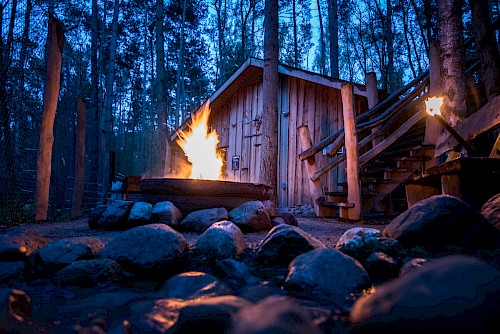
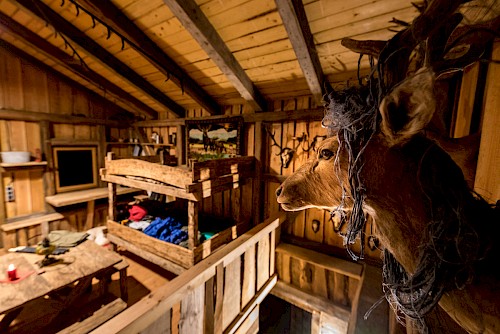
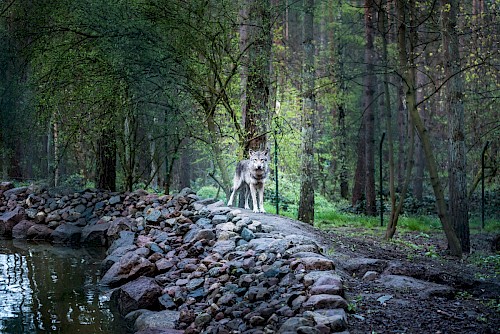
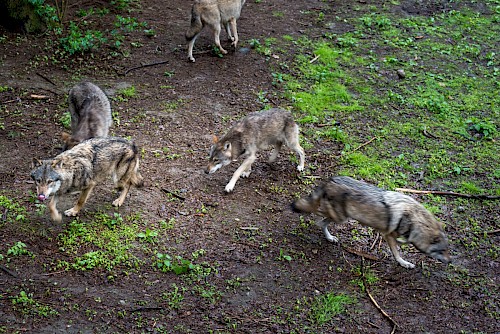
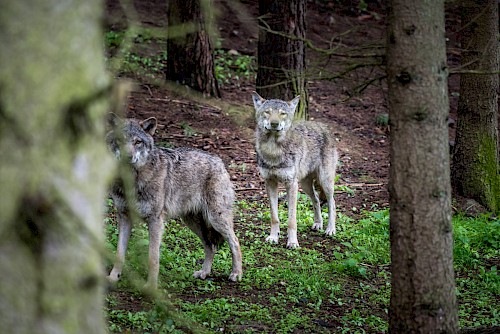
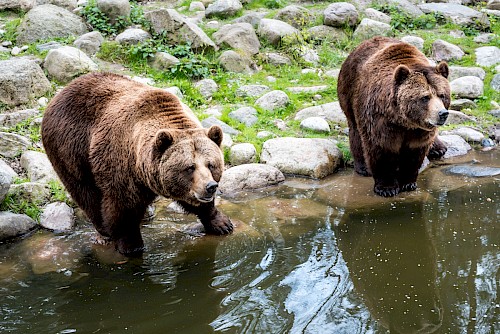
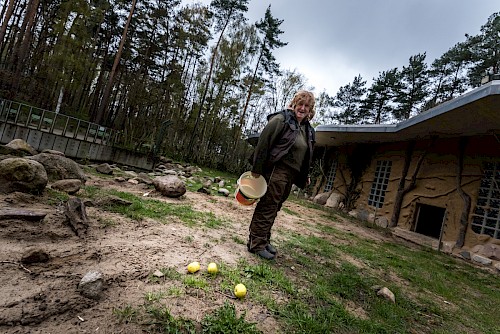
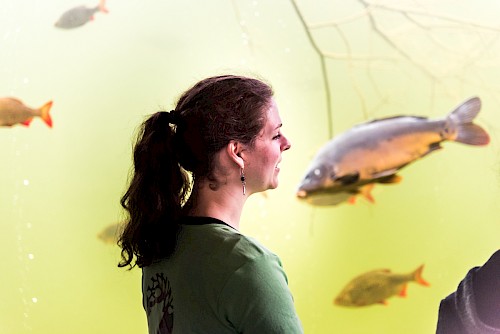
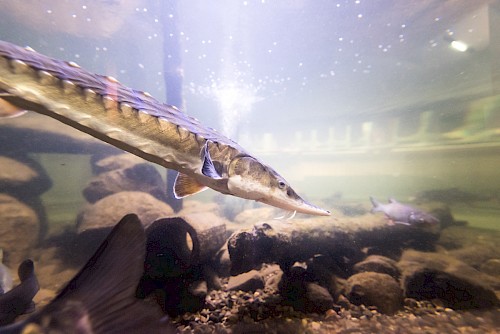
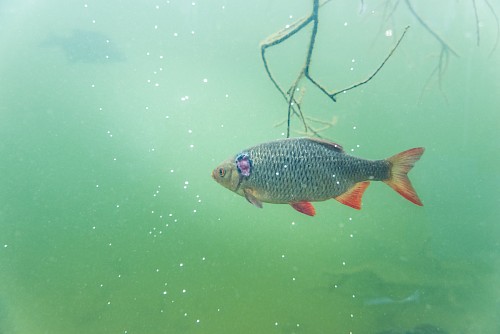
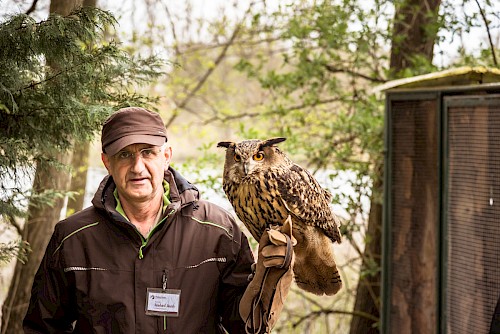
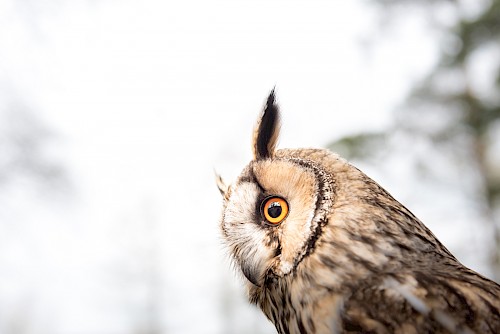
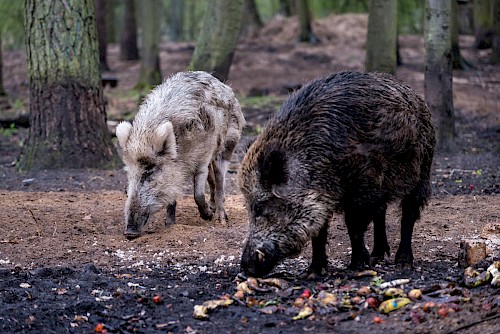
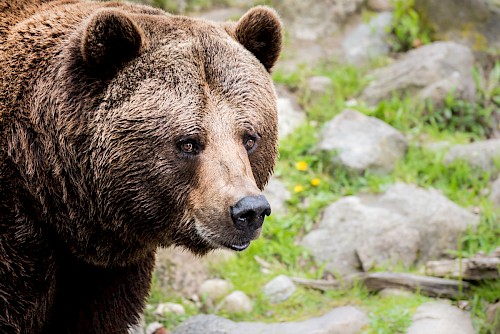
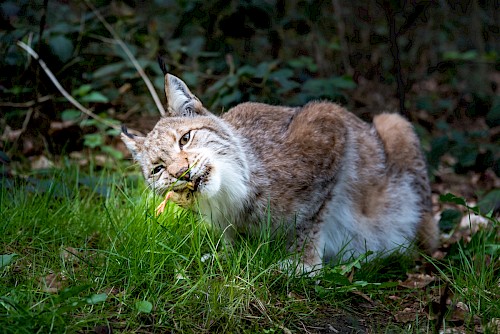
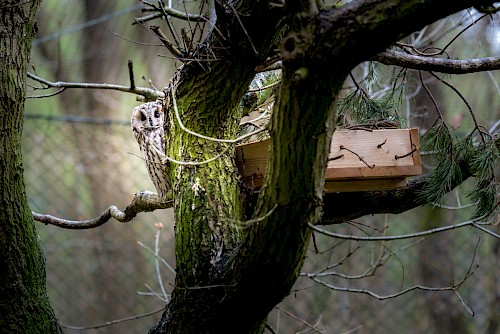
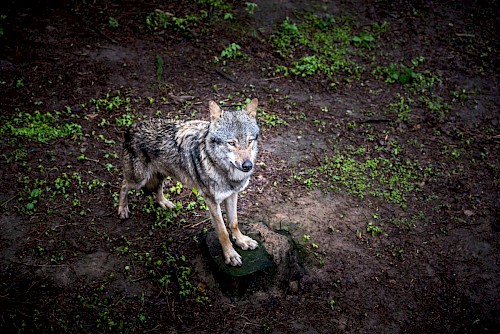
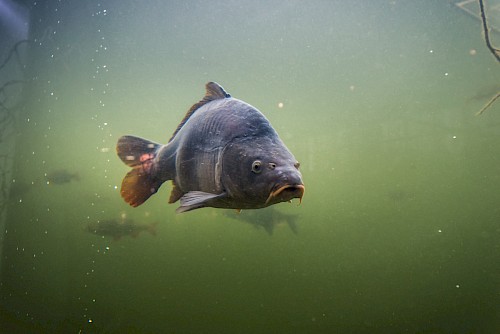
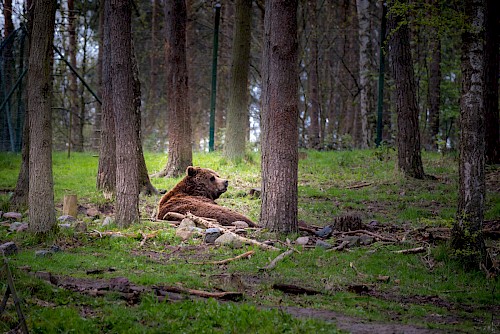
No comments
Leave a comment